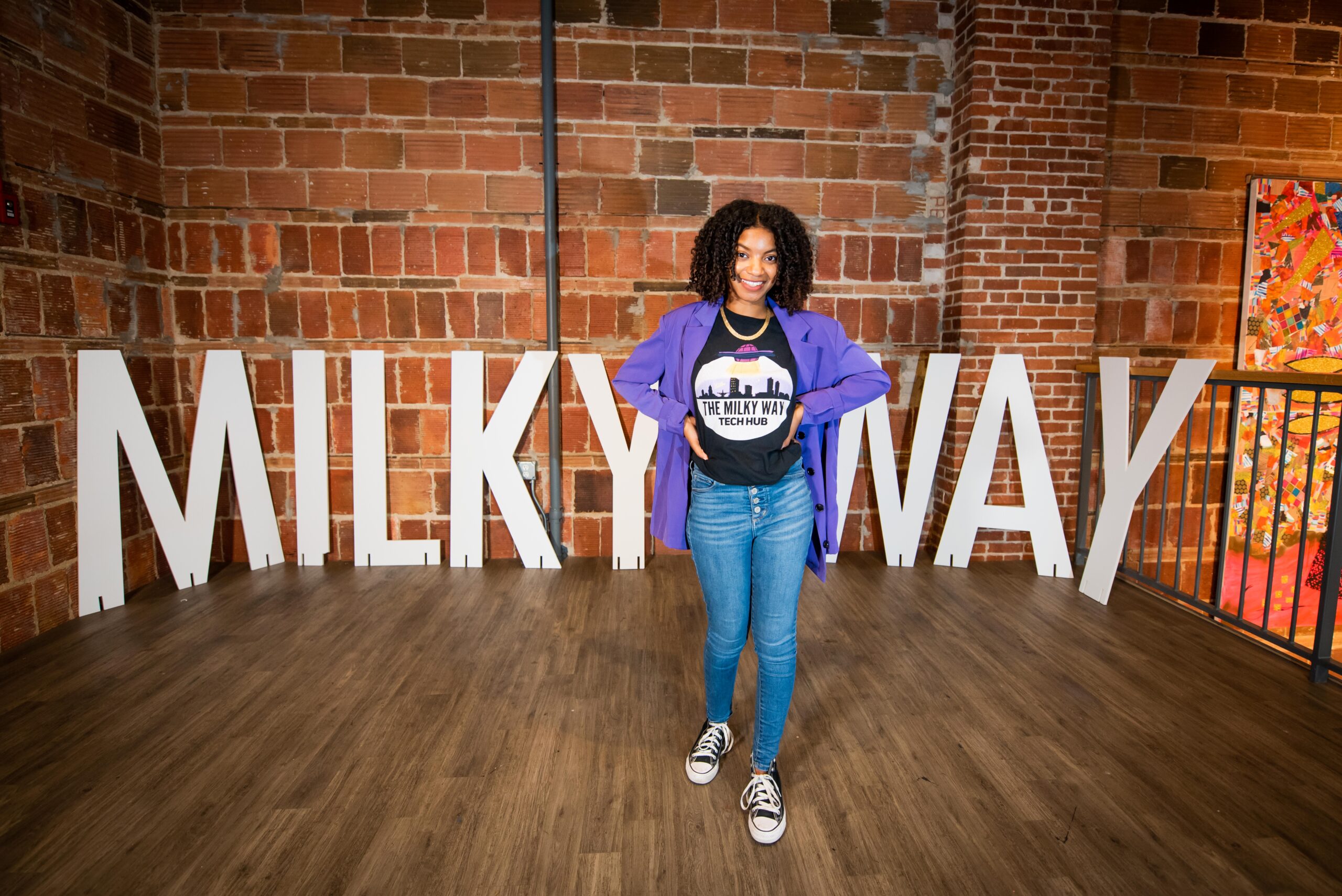
Early in Nadiyah Johnson’s career as a computer scientist, she discovered that for many people—including people of color and women—the technology industry wasn’t an entirely comfortable space.
Johnson, who is a Black woman, had just reported her summer internship efforts to top executives who were responding positively when her supervisor called her over to a corner of the room.
‘We’ve got to do something about your hair,’” Johnson remembers her supervisor telling her. “It’s way too distracting.”
Johnson, who founded software development company Jet Constellations, has made it her mission to ensure that people of color and women pursuing careers and entrepreneurship opportunities in technology have a very different experience from the one she had.
That’s why all of October’s Wisconsin Tech Month events have a diversity, equity and inclusion or civic tech component, Johnson says.
“Whether it’s biotech, advanced manufacturing or computer science, Wisconsin entrepreneurs and businesses are constantly innovating,” says WEDC Secretary and CEO Missy Hughes. “Now the job is to ensure that all Wisconsin residents are able to take part in the amazing opportunities that technology opens up.”
Hughes and Johnson were with Governor Tony Evers earlier this month when he proclaimed October as Tech Month.
“My goal for Wisconsin Tech Month is to bring awareness to the incredible work that is being done across the state, specifically with creating equity and inclusion in tech,” says Johnson, who is also the founder of the Milky Way Tech Hub in Milwaukee, which helped organize the month’s programming. “There’s a lot of momentum.”
Only about 3% of Wisconsin’s tech workers identify as Black, while Black people make up 6% of the state’s total workforce, according to the Computer Technology Industry Association (CompTIA) Cyberstates 2021 report. Latinos also make up 3% of the tech workforce and 6% of Wisconsin’s overall workforce.
Milky Way Tech Hub is trying to change those numbers. The organization works in three areas to help people of color find a place in the tech industry. First, the group provides science, technology, engineering, art and math (STEAM) education opportunities. The second component is community, which includes setting up Wisconsin Tech Month programming such as panel discussions, an app challenge, film screening and more.
“Black tech hubs matter,” Johnson says. “They’re needed. We have strong and authentic relationships with the community that allow us to curate solutions that really serve the community.”
Finally, the group works with entrepreneurs to help people of color find the resources to take their ideas and careers to the next level. With an $82,850 seed accelerator grant from WEDC, Milky Way held its first two-week entrepreneur bootcamp this summer.
Many groups that are underrepresented in the tech industry don’t have what Johnson calls “navigational capital”—the knowledge, resources and support system to take their ideas and their careers to the next level.
Johnson, who hopes to create a guidebook for tech professionals and entrepreneurs, says this has implications far beyond individual careers or companies. A programmer’s experiences and biases feed into the technological solutions created—meaning that with fewer people of color developing technology, technology often doesn’t serve people of color as well.
“The reality is that most of the technological solutions today have been primarily developed by white males,” Johnson says. “We have to ask ourselves: Who is behind these data models? Who codes, matters.”
Whether its ensuring access to technological solutions that work for diverse communities or opportunities to access tech jobs and to build tech businesses, it is important that Wisconsin takes steps to ensure all populations can see themselves in tech, Johnson says.
“Whatever benefits do come out of the tech industry here in Wisconsin and nationally need to come to all of us,” she says.
